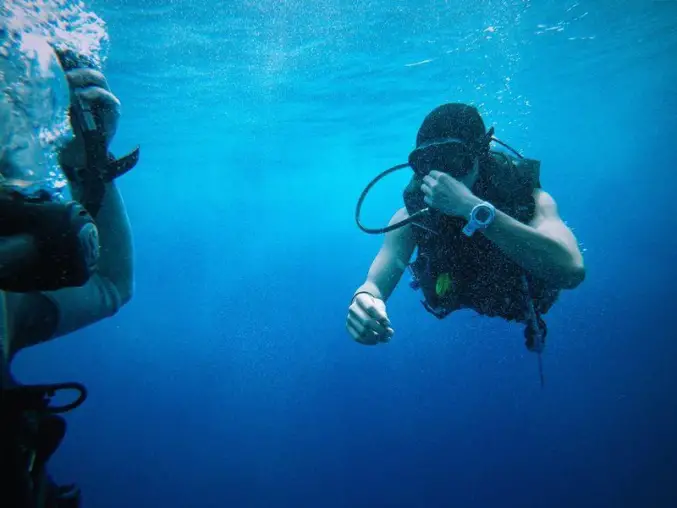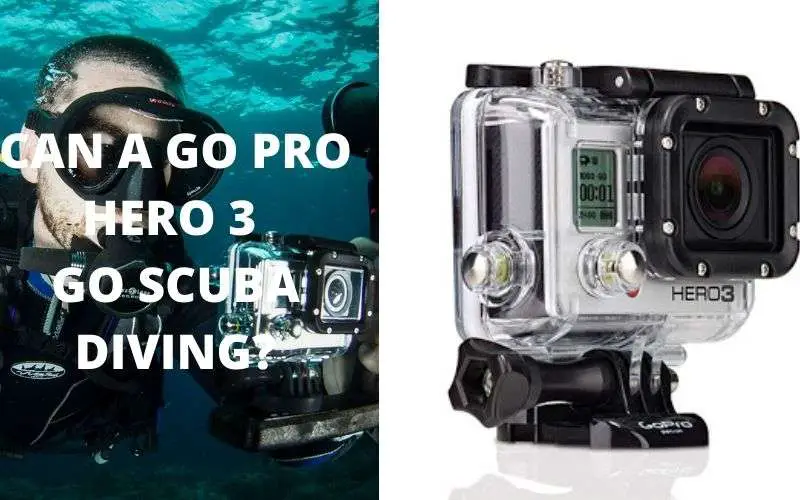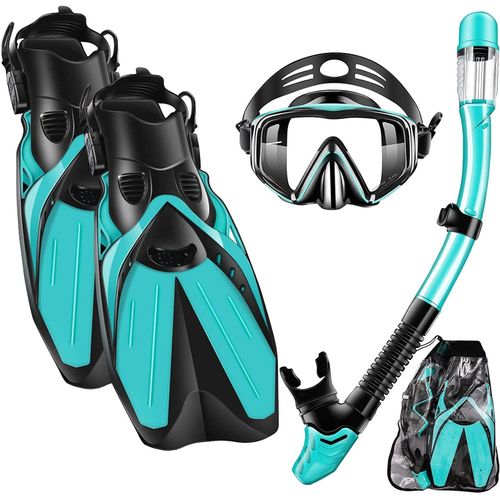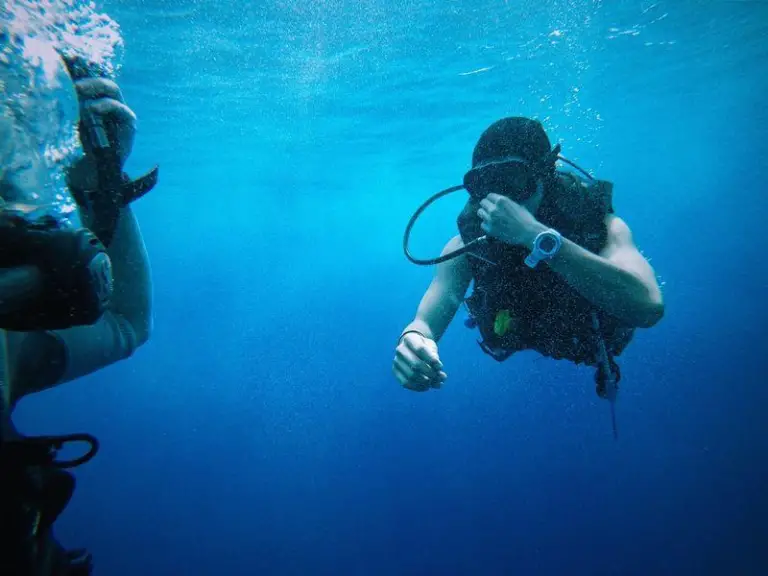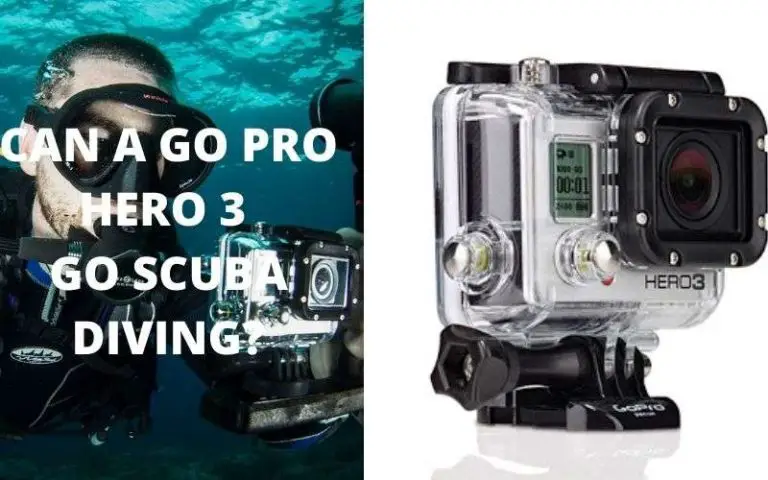
Picture this: you’re on a dreamy vacation, surrounded by crystal-clear waters, ready to dive into the mesmerizing underwater world. Yet, a nagging sore throat threatens to rain on your parade. It may seem like a minor inconvenience, but it can turn simple pleasures like eating and drinking into uncomfortable ordeals, potentially derailing your vacation plans. You can’t help but wonder, could snorkeling be the unexpected culprit behind your sore throat?
In this extensive exploration, we’ll delve into the potential triggers of a sore throat while snorkeling and unravel the mysteries surrounding this predicament. We’ll investigate common causes, the likelihood of experiencing a sore throat during your snorkeling escapades, effective treatment options, invaluable tips to prevent such discomfort, and whether it’s safe to continue snorkeling with a sore throat.
Common Causes of Sore Throat while Snorkeling

Snorkeling, a delightful activity for water enthusiasts, immerses you in an environment that can expose you to various factors leading to a sore throat. Let’s begin our investigation by dissecting the most prevalent causes:
1. Dry Mouth and Dehydration
One of the primary culprits behind sore throats post-snorkeling is dry mouth and dehydration. When you’re snorkeling, you’re breathing through a tube, which can contribute to mouth dryness. Additionally, salty sea water can exacerbate this condition, as salt is known to dehydrate the body. The lack of moisture in your mouth and throat can cause irritation, discomfort, and eventually, a sore throat.
2. Infections from Shared Equipment
Sharing is caring, but when it comes to snorkeling equipment, it may not always be in your best interest. Infections can occur if you’re using communal snorkels or masks, as these items can harbor bacteria, viruses, or fungi from previous users. The moist environment inside snorkeling gear provides an ideal breeding ground for microorganisms. Inhaling or swallowing these pathogens can lead to throat infections and soreness.
3. Water Contamination
The pristine waters you’re exploring might not always be as clean as they appear. Pollution, marine life, and even natural microorganisms in the sea can introduce foreign particles into the water. Inhaling or ingesting these contaminants while snorkeling can irritate your throat, leading to that pesky soreness.
What is the Likelihood of Getting a Sore Throat while Snorkeling?
Understanding the likelihood of experiencing a sore throat during your snorkeling adventure is crucial. While it’s not a guaranteed outcome, it’s essential to be aware of the risk factors that can increase your susceptibility. Several variables contribute to your vulnerability:
1. Duration of Snorkeling
The longer you spend in the water, the higher the chance of encountering one of the sore throat triggers mentioned earlier. Extended exposure to dry mouth conditions or contaminated water increases the odds of developing discomfort.
2. Water Conditions
The state of the water you’re snorkeling in plays a significant role. Turbid or polluted waters pose a more substantial threat, as they contain higher concentrations of potentially harmful microorganisms and particles.
3. Immune System Health
Your immune system’s strength can also influence your susceptibility to a sore throat. If your immune system is compromised or weakened due to factors like fatigue, stress, or illness, you may be more prone to infections and throat irritation.
How to Treat a Sore Throat
Now that we’ve explored the causes and likelihood of developing a sore throat while snorkeling, let’s delve into the remedies and treatment options to alleviate your discomfort if you find yourself facing this predicament:
1. Hydration
If dry mouth and dehydration are the culprits, the first step to remedy the situation is to rehydrate. Drink plenty of water to soothe your parched throat and replenish lost fluids.
2. Throat Lozenges and Sprays
Over-the-counter throat lozenges and sprays can provide temporary relief from soreness. They help soothe the irritation and reduce discomfort while your body’s natural healing processes take over.
3. Rest and Relaxation
Sometimes, all your body needs is a little TLC. Resting your voice and avoiding strenuous activities can expedite the healing process. Adequate sleep and relaxation can do wonders for a sore throat.
4. Antibiotics (if necessary)
If your sore throat is the result of a bacterial infection, your healthcare provider may prescribe antibiotics to address the underlying cause. It’s crucial to complete the full course of antibiotics as prescribed.
Tips to Avoid a Sore Throat While Snorkeling

Prevention is often the best cure, and when it comes to avoiding a sore throat while snorkeling, a few proactive measures can go a long way:
1. Stay Hydrated
Before and after snorkeling, ensure you’re well-hydrated. Drink water regularly to counteract the effects of dry mouth and dehydration.
2. Use Personal Equipment
Whenever possible, bring your snorkeling gear or rent from reputable sources that sanitize their equipment thoroughly. Using your equipment reduces the risk of infections from shared items.
3. Check Water Conditions
Before diving in, assess the water conditions. Avoid snorkeling in polluted or turbid waters, as these increase the chances of encountering contaminants that can lead to a sore throat.
4. Practice Proper Hygiene
Maintain good personal hygiene, especially before and after snorkeling. Shower and change out of your wet gear promptly to minimize exposure to harmful microorganisms.
5. Strengthen Your Immune System
Prioritize a healthy lifestyle to bolster your immune system. A balanced diet, regular exercise, and adequate sleep can help your body fend off potential infections.
Is it OK to Snorkel with a Sore Throat?
Now, let’s address a common concern: Is it safe to continue snorkeling if you already have a sore throat? While it’s generally advisable to give your body time to heal, mild sore throats may not necessarily halt your snorkeling plans. However, there are important considerations to keep in mind:
1. Listen to Your Body
Pay close attention to how your body feels. If your sore throat is accompanied by other symptoms like fever, cough, or extreme fatigue, it’s best to skip snorkeling until you’re fully recovered.
2. Modify Your Snorkeling Experience
If you’re determined to continue snorkeling, take it easy. Limit the duration of your underwater excursions, avoid strenuous swimming, and ensure you stay hydrated throughout.
3. Use a Mouthpiece
To mitigate further irritation, consider using a mouthpiece that covers your mouth and throat, creating a barrier between your respiratory system and potential irritants in the water.
As you venture into the underwater realm, consider the following key takeaways:
1. Knowledge is Power
Understanding the common causes of sore throats while snorkeling equips you with the ability to identify potential risks and act accordingly. Whether it’s combatting dry mouth, avoiding shared equipment, or being mindful of water conditions, your awareness can make all the difference.
2. Preparation is Key
Prioritize your health and well-being by staying hydrated, maintaining proper hygiene, and nurturing your immune system. These preventive measures lay a solid foundation for an enjoyable snorkeling experience.
3. Listen to Your Body
Your body often provides the best guidance. If you do develop a sore throat while snorkeling, pay attention to how you feel. Don’t push yourself if you’re not up to it, and don’t hesitate to modify your plans for a more comfortable and safe underwater journey.
4. Seek Professional Advice
If your sore throat persists or worsens despite self-care measures, consult a healthcare professional. They can determine the underlying cause and recommend appropriate treatment, which may include antibiotics or other medications.
5. Adapt and Overcome
Remember that a sore throat doesn’t necessarily mean the end of your snorkeling adventure. With a mouthpiece and some modifications to your snorkeling routine, you may still be able to enjoy the beauty of the underwater world.
In the grand scheme of things, a sore throat while snorkeling is a temporary inconvenience that can be managed with the right approach. By addressing the root causes, taking preventive measures, and listening to your body, you can minimize the chances of it occurring and maximize your enjoyment of the marine wonders that lie beneath the surface.
Conclusion
A sore throat while snorkeling can indeed put a damper on your vacation experience. However, armed with knowledge about the common causes, prevention strategies, and treatment options, you can minimize the risk of encountering this discomfort. Remember to prioritize your health and well-being, and don’t hesitate to seek medical advice if your sore throat persists or worsens.
So, the next time you embark on a snorkeling adventure, you can do so with confidence, knowing that you have the tools and information needed to make it an enjoyable and comfortable experience. While there’s always a slight risk of developing a sore throat while snorkeling, taking proactive steps can significantly reduce the likelihood of it happening.



